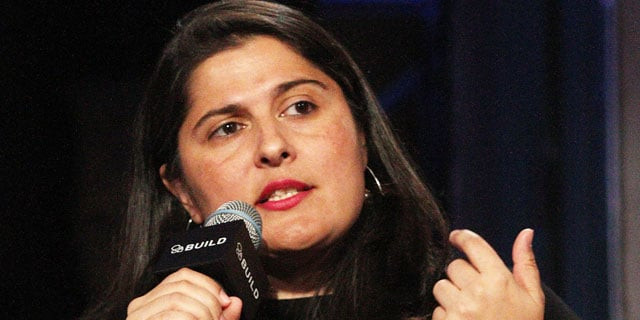Sharmeen Obaid-Chinoy on “A Girl in the River”
The film and the award prompted lots of conversation in Pakistan on 'honour killings'

PHOTO: HuffingtonPost
The documentary, which premiered on HBO Monday night, follows the story of 19-year-old Saba Qaiser from rural Punjab, whose father and uncle tried to kill her after she married a man without their approval.
Woman burnt alive in India 'honour killing'
The film and the award prompted lots of conversation in Pakistan on “honour killings“, where brothers, fathers or uncles murder women to protect their family honour.
“I think this Oscar and the recognition that comes with it is the first step towards driving the conversation in the right direction,” said Obaid-Chinoy, 37, speaking by telephone from Karachi.
More than 500 men and women died in honour killings in 2015, according to the Human Rights Commission of Pakistan. Most of these killings did not result in prosecutions.
After the win, Pakistani Prime Minister Nawaz Sharif, who screened the movie at his home, reiterated that his government was pushing a law to stop such killings.
Every man should watch this short film by Sharmeen Obaid Chinoy
“As a filmmaker, that’s the biggest reward — to see the tremendous change you can bring about in your country,” said Obaid-Chinoy, who won her first Academy award in 2012 for directing “Saving Face” a film on the horrors endured by women who suffer acid attacks in Pakistan.
The director came across Saba’s story in a local newspaper. She found the victim, who was recuperating from a bullet wound in a hospital in Gujranwala. In interviews with Saba’s family, the documentary reveals how the teenager had no support from anyone, including her mother and sister. They think Saba got what she deserved for bringing dishonour upon their family and making them outcasts.
“The biggest challenge I had in making this documentary was not in dealing with the authorities or the police. It was countering the mindset of the people in Pakistani society who think it’s OK to kill someone in the name of honour,” Obaid-Chinoy said.
Don’t blame the healer
Saba’s father and uncle, who were in jail when Obaid-Chinoy was filming, were defiant. Maqsood, her father, repeatedly defends himself in Punjabi. “I’m an honorable man. I was obliged to do it.” Maqsood says he would have tried to kill Saba’s husband had their paths crossed.
Obaid-Chinoy argues with Maqsood. In that powerful moment, she emerges as a woman first and a journalist second — as someone who cannot stand by as Maqsood justifies his action on honour and on Islam. It’s a reminder of how far some people in some nations have to go toward acknowledging that women should be able to fall in love and marry without fearing for their lives, and an especially potent one as the world marks International Women’s Day on Tuesday.



















COMMENTS
Comments are moderated and generally will be posted if they are on-topic and not abusive.
For more information, please see our Comments FAQ